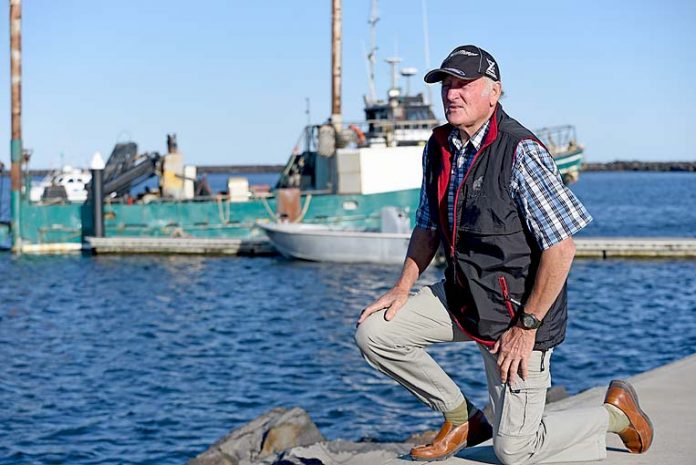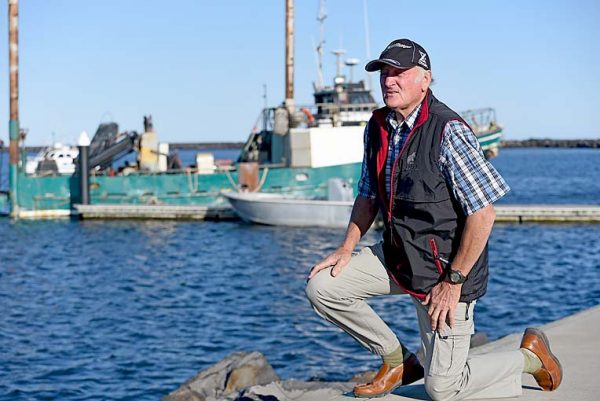

PORT MacDonnell’s multi-million dollar rock lobster fishing sector has expressed its anger the commercial harbour continues to be clogged with sand and seaweed less than two weeks from the opening of the season.
While the transport department has engaged a contractor to remove seaweed/sand in the vicinity of the boat ramp and wharf, fed-up industry leaders have described this as a just a “stopgap” measure.
It is feared commercial boats may not be able to access the fuel station and boat engines will be damaged by the build up of debris in the busy harbour.
Concerns have also been flagged the issue could see motors failing out to sea, which potentially poses a major safety risk for crew members during rough weather.
Port MacDonnell – home to the largest rock lobster fleet in southern hemisphere – will have around 60 commercial boats moored in its harbour when the season kicks off on October 1.
A furious Port MacDonnell Professional Fisherman’s Association president Roger Cutting said the current works by the department was just “stirring up” the material in the harbour and was not solving the problem.
“This is just a stopgap measure and will not fix the long term issues in the harbour,” Mr Cutting said yesterday at the troubled harbour.
He called on the department to “pump” the material out of the harbour and undertake works on the breakwater to restore water flow.
“The material should be pumped over the wall,” Mr Cutting said.
It is understood every time fishers refuel, they are forced to clean out their cooling filters because they are completely clogged with debris, particularly seaweed.
Mr Cutting warned the amount of seaweed/sand build-up was “bigger than before” despite some works being undertaken by the department some months ago.
“The works being undertaken by the department is like dragging a piece of wood along the bottom of the harbour – all it is doing is stirring up the material.”
Mr Cutting said he had been told the department could not pump the material out of the harbour because it was an “environmental issue.”
One of the biggest problems facing the sector is the potential damage to motors given they can cost more than $120,000.
Mr Cutting suggested the department should take out pipes and rocks along the breakwater to improve water flow given the stagnate nature of the harbour.
According to the Department of Planning, Transport and Infrastructure (DPTI), it has engaged a contractor to remove seaweed that had accumulated in the vicinity of the boat ramp and wharf at Port MacDonnell.
“DPTI is also continuing to work with Grant District Council to remove further seaweed that has accumulated on the foreshore between the boat ramp and the jetty and works are likely to be undertaken in October/November, subject to contractor availability,” the statement said.
“The department is working on a proposal to undertake dredging works within the harbour.”
Grant District Council works manager Adrian Schutz said council was working with the department to address the seaweed build-up on the foreshore and in the harbour.
He said seaweed along the foreshore could not be removed at the moment due to the high tide.
Council will also have to seek approval to dump seaweed at a location, which has proven problematic.
Mr Schutz said any dredging works would need planning approval.
The rock lobster fishing industry generates around $280m for the South Australian economy each year and provides hundreds of jobs, both direct and indirect.
It has been 13 years since the harbour was last dredged despite the department collecting more than $1m in mooring fees.







